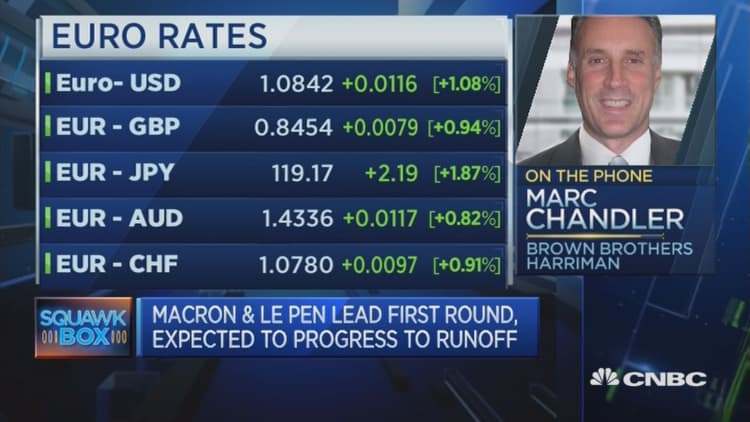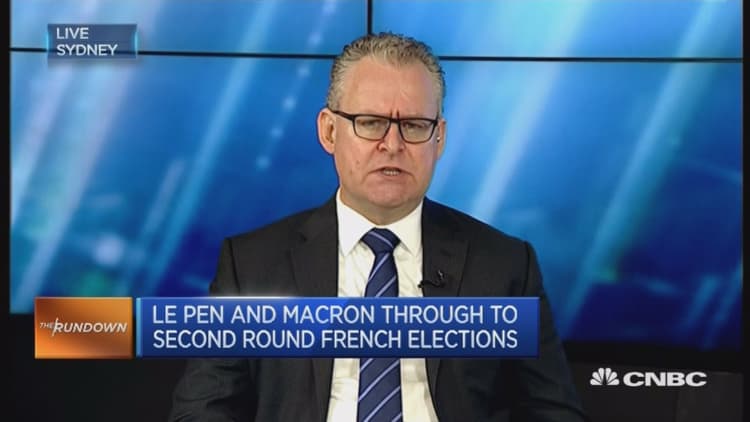
The euro's spike to a five-month high after the results of France's first round of presidential voting came in as expected was already fading in early Asia trade Monday.
The single currency jumped as high as $1.0935, the highest since just after the U.S. election in November, after Sunday's voting in France, but had fallen to $1.0825 by 10:27 a.m. on Monday.
Centrist Emmanuel Macron and far-right candidate Marine Le Pen were headed to a runoff in France's presidential election, set for May 7, matching expectations for the first round outcome on Sunday. Polls forecast that pro-European Macron will roundly defeat anti-European Union Le Pen.
The euro had been weighed by uncertainty heading into the voting Sunday as the four leading candidates were all polling within the margin of error for deciding which two would proceed to the second round.
Marc Chandler, global head of currency strategy at BBH, told CNBC's "Squawk Box" on Monday that the market wasn't surprised by the outcome.
"This is very much what the market expected so what we saw happen, is that the euro has been marked sharply higher immediately as the results were known and since then it's actually been trickling lower," he said.
Chandler also noted that the results showed that the market may be able to throttle back concerns about other risks.
After the U.K. voted in June to exit the European Union, fears have risen that other European nations might exit, potentially breaking up the monetary union or the entire trading bloc.
"The big takeaway from this, like the Dutch election earlier this year, is that there is not a populist, nationalist wave sweeping across the world," Chandler said, noting that Germany's right-wing, anti-immigration, Eurosceptic party AfD was "very weak" and getting weaker.
But others attributed the euro's step back to continued concerns over Le Pen.

Kingsley Jones, chief investment officer at investment advisory Jevons Global, told CNBC's "The Rundown" on Monday that he expected the euro would "close up" some of its gains as it discounted the potential for Le Pen to close the sizeable gap with Macron.
"But I think signs are positive for a Macron victory. Let's think about why markets might want that. Some of it is the politics, but a big part of it is really Le Pen's strategy regarding the euro and her statements about wanting to leave," Jones said. "You redenominate debt and that would be just a lot of financial instability, not only for France but for Europe. And markets really aren't going to like that very much."
Jones noted that Jevons Global liked the euro and was moving more money into Europe.
"But we're doing that slowly because there is a fair bit of volatility and risk out there still," he said.
—By CNBC.Com's Leslie Shaffer; Follow her on Twitter @LeslieShaffer1



